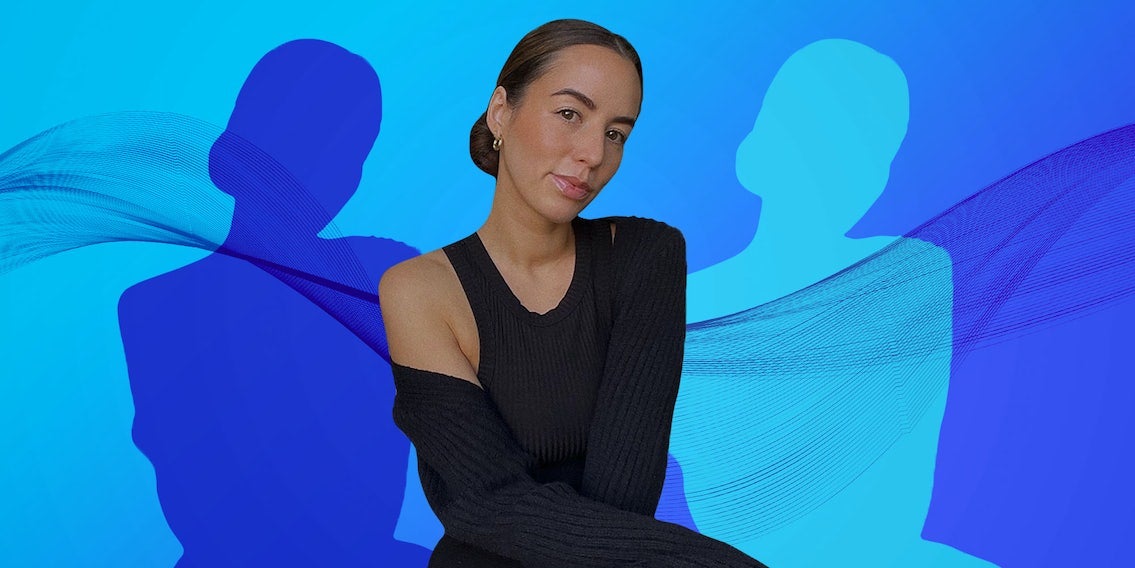
The act of “gifting,” where companies provide influencers with free products in exchange for social media content, is a frustrating but commonplace practice in the creator economy, especially for micro-influencers who are still trying to make a name for themselves.
In October, one TikToker named Renee Rodriguez (@reneedrodriguez) criticized tights brand Sheertex about its approach to sponsored content in a video that amassed over 600,000 views.
“OK, I’ve never gotten messy on this app before, but I’m about to get messy because I just got an email from a brand that really upset me,” Rodriguez said in the video.
According to Rodriguez, the clothing brand, which she identified as Sheertex in a later video, offered her two pairs of tights valued at $50 each in exchange for one TikTok video. She explained this wasn’t a viable option for her because if she is gifted any items valued at $100 or more she has to pay taxes on those items.
“So essentially, I am paying to work for free,” Rodriguez said.
Rodriguez claimed after politely declining the offer via email, the clothing brand replied with a 12-page creative brief in case she changed her mind. Rodriguez said the brief asked creators for either one TikTok video or Instagram Reel and also asked for one year of usage rights over the TikTok or Reel.
“They also had instructions on how to authorize whitelisting for Instagram and TikTok, which means that they are prepared to pay platforms like Instagram and TikTok to run my content as a paid ad, but they won’t pay me—the person who actually created the content.”
Whitelisting involves an influencer giving their brand partner advertising permission with their social media accounts. Amongst other things, this allows the brand to use the influencer’s social media handles for their advertising.
Rodriguez continued, “The fact that this brand raised $101 million this year, $60 million last year, and they are compensating creators with two pairs of tights blows my mind. … I do not rely on my influencer income to pay the bills, but people do, and you are disrespecting them by offering them two pairs of tights for content that you’re planning to pay TikTok and Instagram to run as ads. It’s messed up.”
While a small number of viewers in the comments section took the brand’s side and lamented the TikToker’s supposed “entitlement,” the majority of TikTok users in the comments section—which included business experts and other influencers—supported the user.
“Woah! Sounds like this brand hasn’t invested in some basic influencer marketing outreach!” one commenter wrote.
“Great share, need to educate folks on this stuff,” another added.
TikTok-verified influencer Mary Orton also made her feelings clear, commenting, “Welcome to how it goes with most brand deals. They rarely respect the creators.”
In a follow-up TikTok, Rodriguez shared a screenshot of a purported email from Sheertex’s founder and CEO, in which the CEO appears to apologize for Rodriguez’s experience with the brand, saying, “It’s disrespectful and we can do much better.”
According to the email, the issue occurred because Sheertex recently changed its “influencer management platform and program.” In response to Rodriguez’s experience, the email claimed the brand was “pausing” its influencer program to “investigate” and “make sure [it] can come back with something the community can be proud of.”
Reflecting on the response from her previous TikTok, Rodriguez said in her follow-up video: “Although most of the comments I received were overwhelmingly supportive, I did get a lot of negative comments. So, I just want to address the people who said that I’m a loser with only 50,000 followers and that I should get a real job. I do have a full-time job separate from influencing which you would know if you had watched the entire video. However, influencing is a real job and it can be a full-time job.”
Rodriguez continued: “I think something that the main commenters aren’t understanding is that it was wrong and that it is wrong for any brand to ask someone to sign away the rights to their content … for zero compensation, especially if that brand has millions of dollars in funding and is planning on paying platforms like Instagram and TikTok to run that content as a paid advertisement. … It’s not about your following. It’s not about your reach. It’s about the fact that a brand should not ask you to sign away the rights to your content.”
As previously covered by Passionfruit, many creators are paid in free or “gratis” products, although the practice is a subject of debate across multiple niches and online communities. In September, the Philadelphia food influencer scene erupted in controversy after a creator said a public relations firm blacklisted her after she did not want to post about a meal she disliked which she received for free. The incident sparked debate about the obligations influencers have to companies that don’t pay them.
Rodriguez and Sheertex did not respond to Passionfruit’s request for comment via email in time for the publication of this article.




